Iguaçu Falls: The Brazilian Side
In November 2015 we went to Foz do Iguaçu, Brazil so we could experience the mighty Iguaçu Falls.
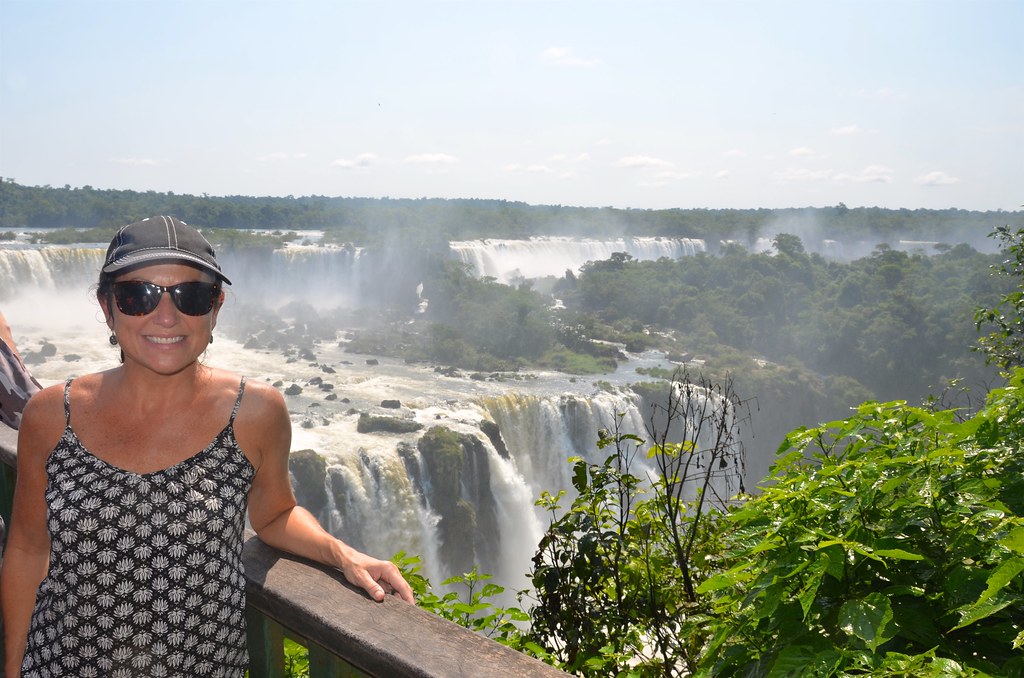
Iguaçu Falls straddles the border of Argentina and Brazil. Since we were staying in Foz do Iguaçu (Bogari Hotel), we decided to explored the Brazilian side of The Falls first.
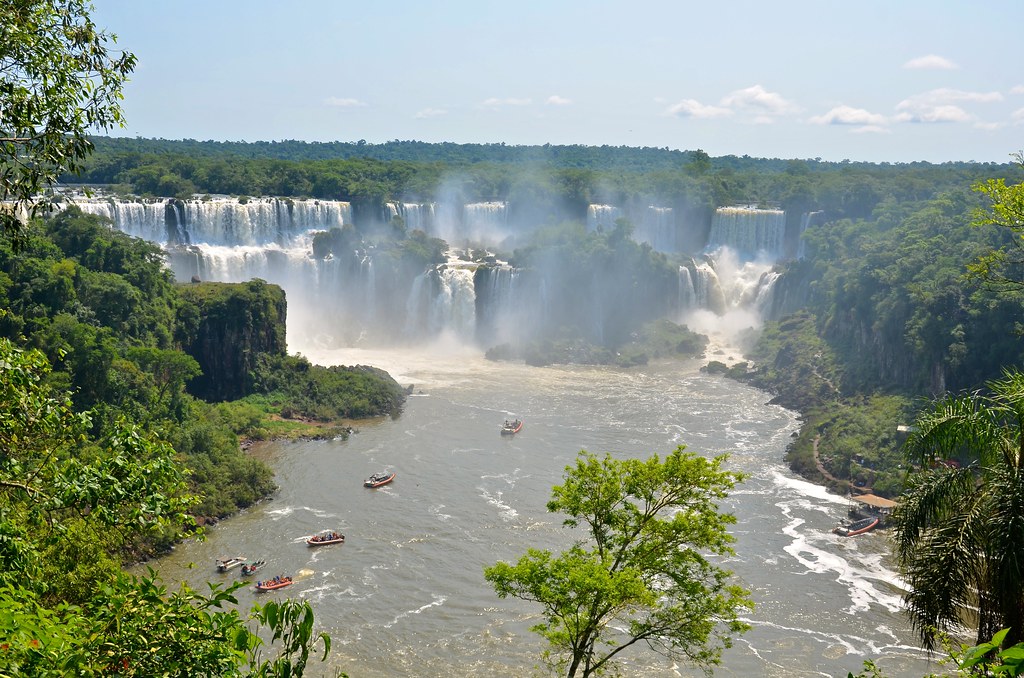
You can read all about our time on the Argentinian side HERE.
In 2011 Iguaçu Falls was selected as one of the winners of the New Seven Wonders of Nature competition.
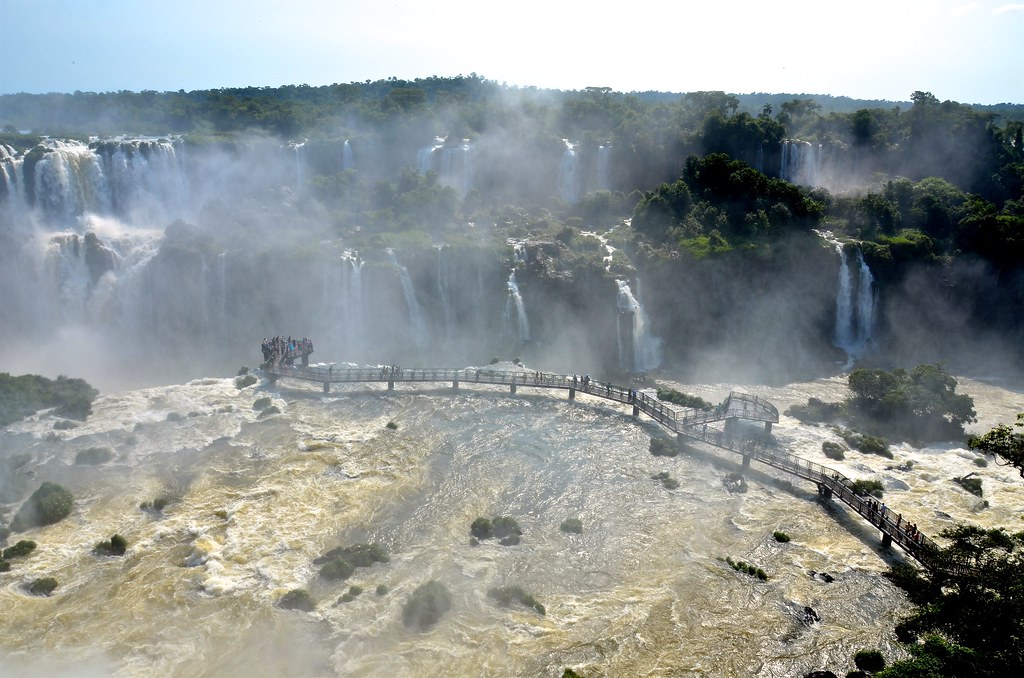
The Falls are made up of 275 waterfalls and spans an area 2.7 kilometers (1.68 miles) wide.
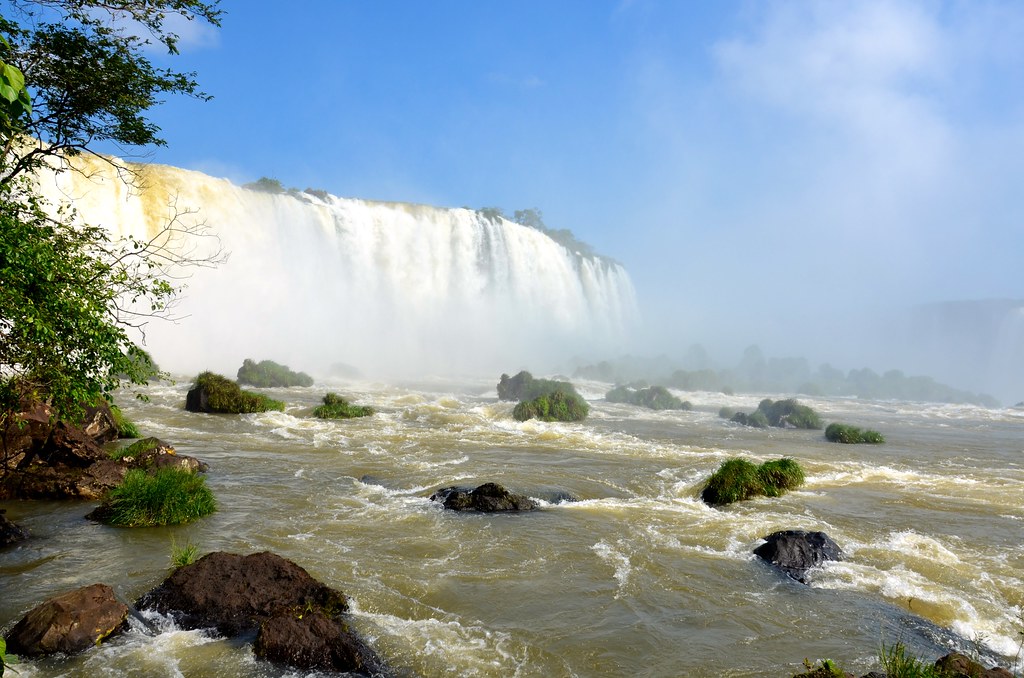
Iguaçu literally translates to “big water” in native Guarani Indian language.
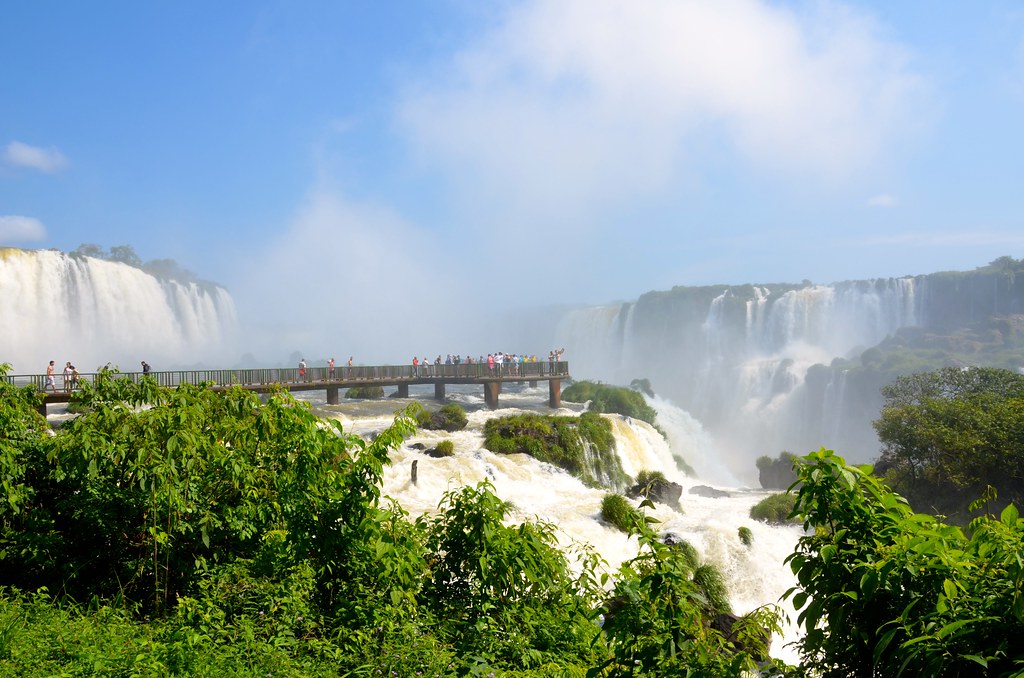
To put the size of Iguaçu in perspective, it is nearly twice as tall as Niagara Falls and nearly three times as wide.
Even First Lady Eleanor Roosevelt was impressed. Upon seeing Iguaçu Falls she announced, “Poor Niagara!”
(Sorry, Ontario and New York.)
Iguaçu Falls is rivaled only by Victoria Falls which is taller at 108 meters, however Iguaçu is significantly wider.
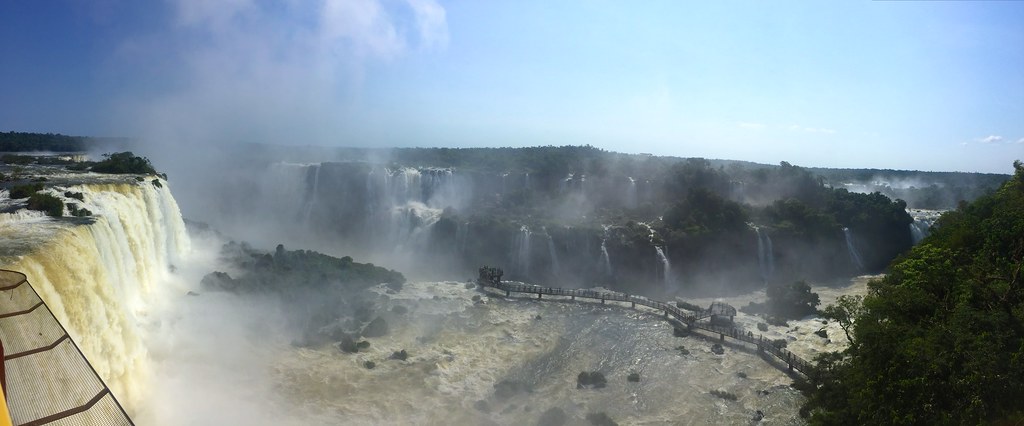
The tallest and most impressive of the waterfalls is a U-shaped cataract nicknamed “The Devil’s Throat”.
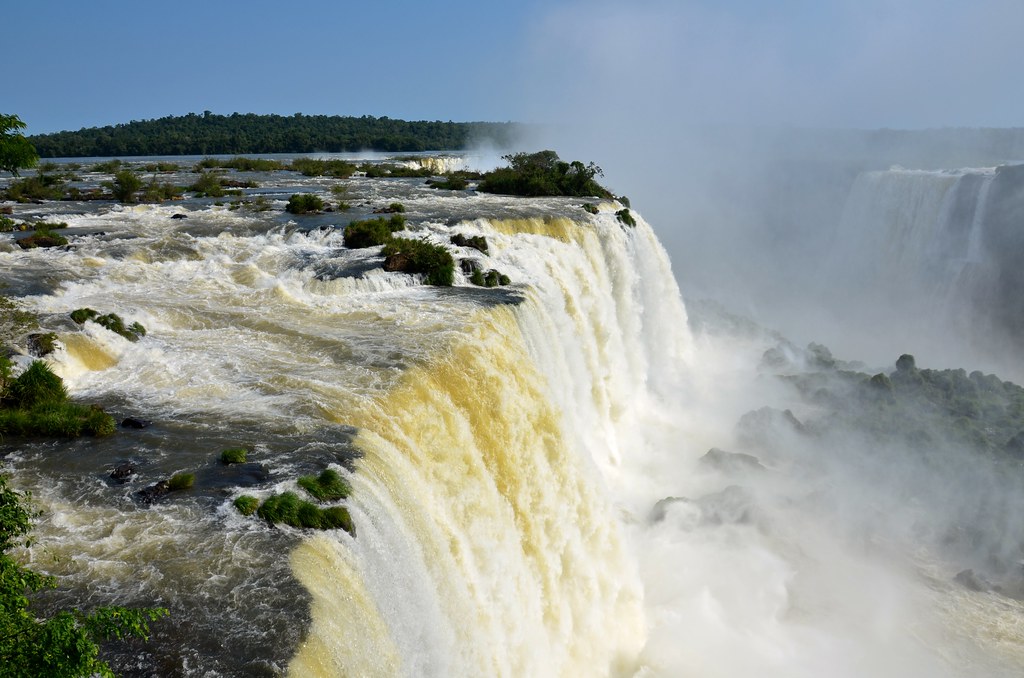
It has 14 falls plunging more than 106 meters (350 feet) and creates a permanent cloud of mist.
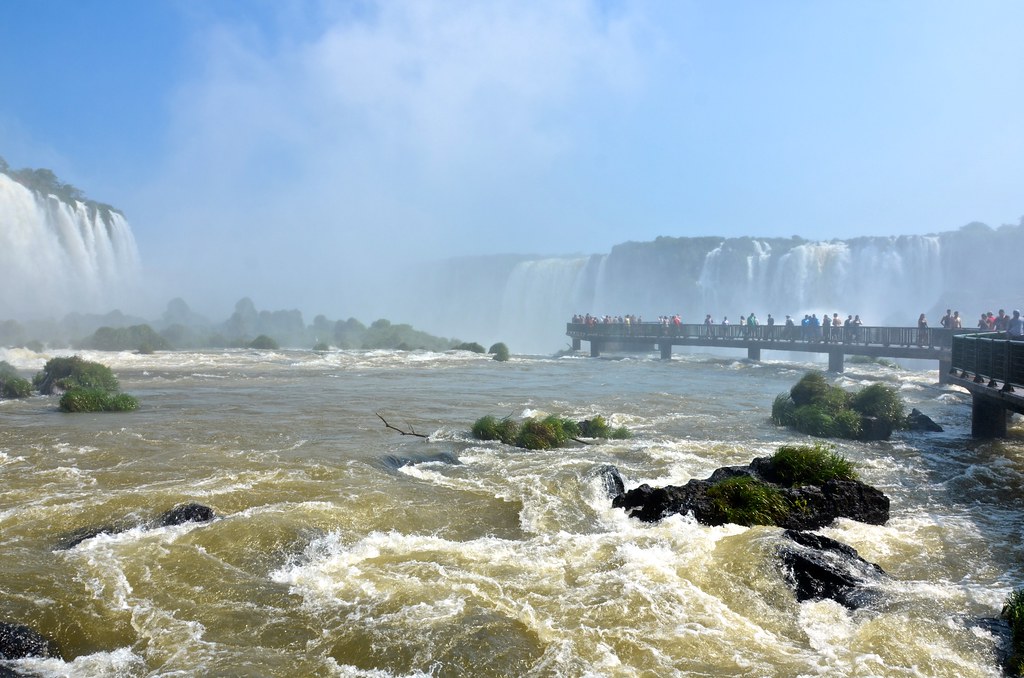
If you want to walk to the end of The Devil’s Throat boardwalk, be prepared to get soaked.
We bought a couple of cheap ponchos mainly to keep our cameras and phones dry.
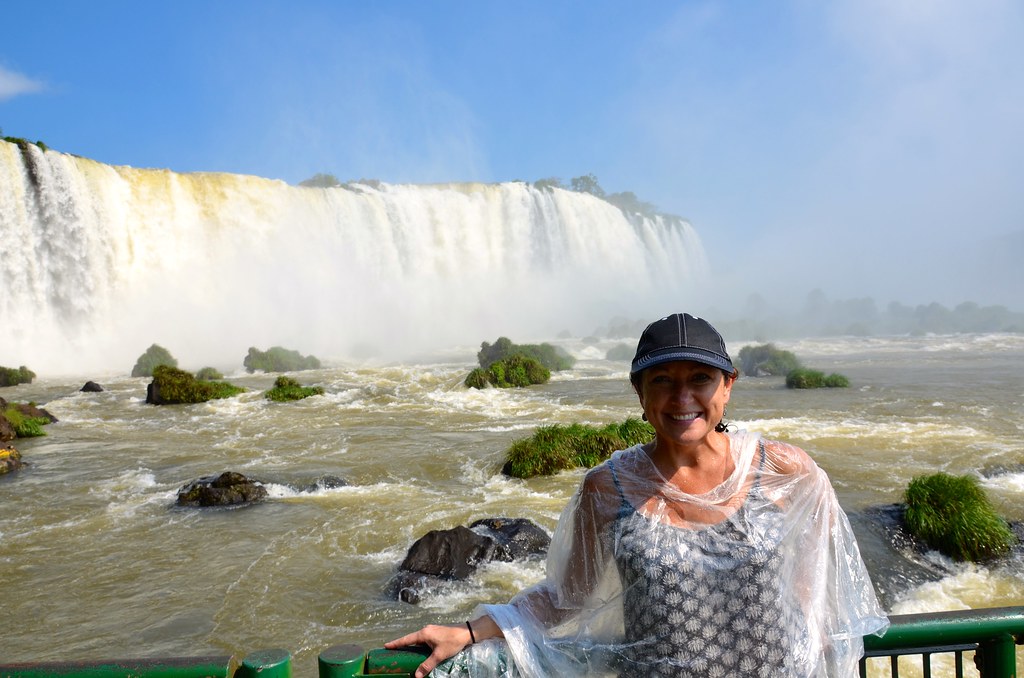
But don’t let the dampness stop you. I honestly think it is the best way to get the full effect of The Fall’s power and energy.
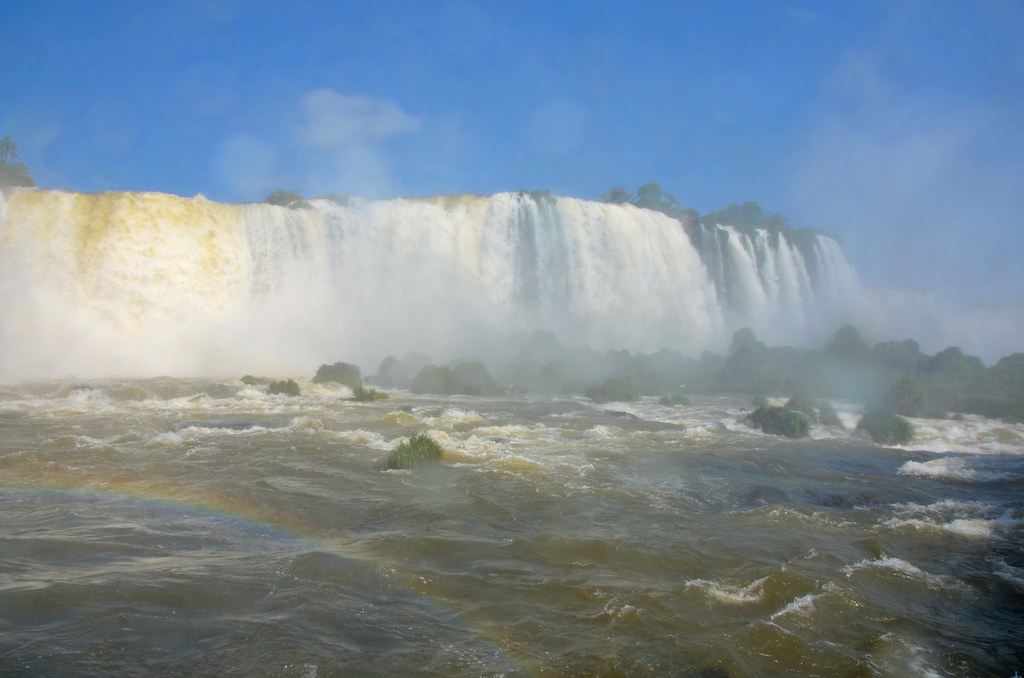
I wish my photos could show the the splendor of Iguaçu Falls. Here is a short video that attempts to fill in the blanks:
Before leaving on our trip we were trying to decide which side of Iguaçu Falls would be the best the see. Of course every write-up expressed their own opinion on the matter, so we decided to visit both sides and decide for ourselves.
After doing so, I can honestly say that one side is not better than the other.
I think in order to grasp the magnificence of this natural wonder, you must visit the Brazilian side and the Argentinian side.
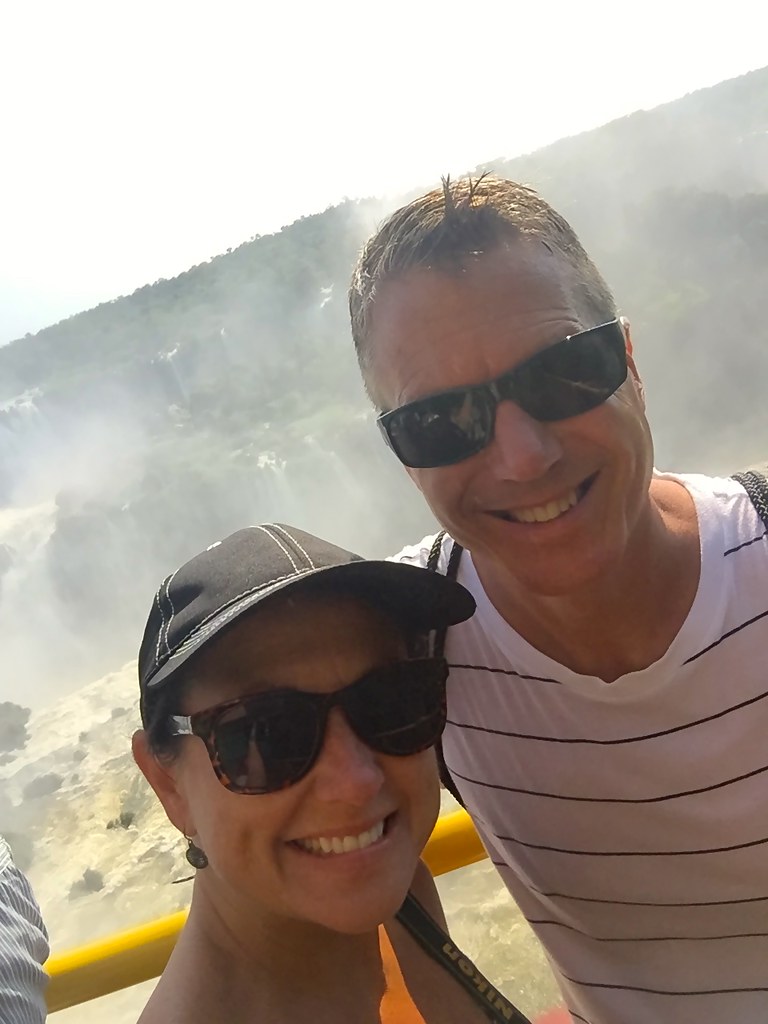
It took us about 2 hours to explore the Brazilian side of the park. Depending on how fast you walk, I think somewhere between 2-4 hours is enough time to see everything at an enjoyable pace.
Please remember to research the VISA requirements for your country prior to visiting Brazil and Argentina.
Brazilian Park Hours: 9:00 a.m. to 5:00 p.m.
Cost: R$ 58,00 each for adults and R$ 9,50 each for children under 12 years old
